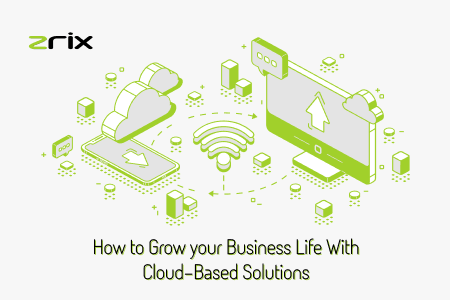Due to the sensitive information in healthcare organizations, they remain by a few specific laws out of which one is the HIPPA - Health Insurance Portability and Accountability Act.
HIPPA sets the required standards for patients' data protection, and the companies who use PHI - Protected Healthcare Information must have physical networks and security measures to ensure HIPPA Compliance.
For better privacy, security, documentation, business association, etc. companies in the healthcare industry use HIPPA Cloud services.
As a result, all the big healthcare organizations are welcoming the advantages of cloud computing like scalability, flexibility, security, and cost-efficiency under the rules of HIPPA Compliance, a protected act for patient's health.
"According to reports, cloud computing software is in daily usage by the medical researchers and by 2020, the cloud storage in the healthcare industry might result in $9.5 billion price tag which is three times of 2015."
For healthcare organizations and companies in the healthcare industry, HIPAA can be a major deciding factor, but before we go into that, let's learn;
Why HIPAA Compliance Applies To The Cloud Storage?
In 2009, the HITECH - Health Information Technology for Economic and Clinical Health Act expanded HIPAA’s requirements to the business associates including Cloud providers who have access to the PHI.
Every business associate signs an agreement "HIPAA-compliant with the cloud services provider" also known as HIPPA compliant storage requirements for creating, maintaining, receiving or transmitting ePHIs.
If a cloud storage service stores PHI on behalf of healthcare organizations, then the service must be a part of HIPPA compliant file sharing under HIPPA Compliance.
Benefits Of HIPPA Compliant Cloud Storage Devices
There are several impacts of cloud storage on the healthcare industry. The one that fascinates me a lot is the collaboration between public-private sectors in healthcare to synchronize and share all the health-related information globally.
The second most essential advantage is electronic records which is a new way to improve, store, and boost data whose access is available publically.
Thirdly, the Cloud enables high-powered data solutions for the research process and advanced clinical research. Also, Cloud keeps documentation safe and secured.
Lastly, mobile technology and higher-tech devices can easily provide healthcare from a distance, for example, e-consultations and tele surgeries.
Here in this article, we’ve compiled the top 5 most popular HIPPA cloud storage services that are docile to HIPAA compliances. Let's take a look into them:
HIPAA-Compliant Cloud Storage Services
Though the HIPAA compliance doesn't prescribe any specific methods to secure data, it encourages encryption as a best security practice. Additionally, those cloud storage services which do not provide BAAs, can't become a part of HIPPA.
The following Cloud storage services support HIPPA include BAAs and keeps data encryption a top-most priority.
Dropbox (Business)
The company announced the support of the HITECH Act and HIPPA compliance in 2015. Today, it provides BAAs for all Dropbox Business customers, administers, review and remove linked devices, user activity reports, user access, and enables two-step authentication method.
Its business version costs $12.50 per month for per user starring five users. Also, it includes Office 365 integration, unlimited storage, file recovery, advanced collaboration tools, and system alerts.
Box
Added to HIPAA/HITECH support in 2013, Box is actively marketing to the healthcare customers. The BAAs are provided to enterprise accounts and features include reporting, auditing, access monitoring, user content authorizations, and file authorizations.
The Box integrations include Office 365, Salesforce, DocuSign, and Google. Also, it allows secure viewing DICOM files (in X-rays, ultrasounds, CT scans) and securely shares data via a direct messaging protocol.
Google Drive
Google also offers a BAA for Google Apps like Docs, Slides, Sheets, and Forms as well as services like Gmail. Administrative controls of Google drive include account activity, app activity, file sharing permissions, tracking, and auditing.
At $5 per user per month, Google gives 30 GB storage space while at $10 per user per month has unlimited storage or 1TB per user if users are less than five. Additionally, it offers several advanced features like additional administrative controls, auditing and reporting, and Google Vault for eDiscovery.
Microsoft OneDrive
Microsoft also supports HIPAA Compliance and HITECH by offering BAAs of enterprise cloud services. It has some of the best and robust security practices in the industry.
The Enterprise E5 level costs $35 per user per month for 1TB of file storage, advanced security management, risk management, and threats' eDiscovery.
Carbonite
Carbonite also supports BAAs and HIPPA Compliance and include offsite backup and data Security Regulation due to which the company is widely accepted as one of the best HIPAA-Compliant Cloud Storage Services.
It offers three plans ranging from $269.99 to $1,299.99 per year. The first two plans include 250GB of storage, and the third one provides 500 GB.
These are the best HIPPA Cloud services that you can choose based upon the number of storage services, features, and pocket-friendly nature.
Read Also
BEGINNER'S GUIDE: HOW TO BUILD A SAAS APPLICATION EASILY?
MICROSOFT DYNAMICS 365: FEATURES, BENEFITS, AND IMPORTANCE




